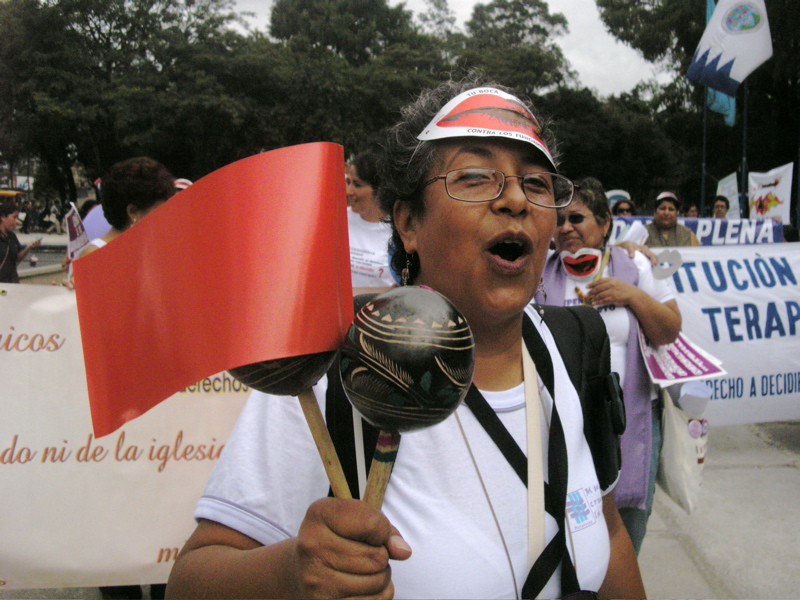In late August the UN Special Rapporteur on the Situation of Human Rights Defenders, Michel Forst, visited Central American countries to hear directly from defenders about the challenges and risks they face and review the situation of impunity. With the spread of organized crime and government corruption, the region has experienced increasing incursions on lands, natural resources and public goods. This has had a profound impact on the standard of living and the exercise of basic rights, and particularly on those who defend those rights and find themselves targeted.
JASS and our Honduran partners took the opportunity to speak out to an international audience about the human rights crisis in the country, discuss the needs of Honduran women human rights defenders (WHRDs), and profile their courageous work in the country. The challenge was to convey the specific risks and roles of defenders in a critical context and raise awareness of the needs of women defenders.
The Rapporteur’s academic visit to Honduras featured a public event on impunity and closed regional and national forums. For JASS and our partners, these events provided spaces to share information, build alliances and develop an outward-looking communications program in English and Spanish.
At the regional forum, Daysi Flores, Honduras Country Coordinator, presented a new in-depth study done by JASS and its partners on the need for a gender focus in protective mechanisms, with case studies of Mexico and Honduras. In the photo below, Daysi delivers the report to the Special Rapporteur.
Preparation began well before the Rapporteur touched down in the country on Aug. 25. This month JASS Mesoamerica produced the Spanish-language report “Gender Focus in the Protection of Women Human Rights Defenders: Experiences in Mexico and Honduras”, written with the Center for Justice and Internation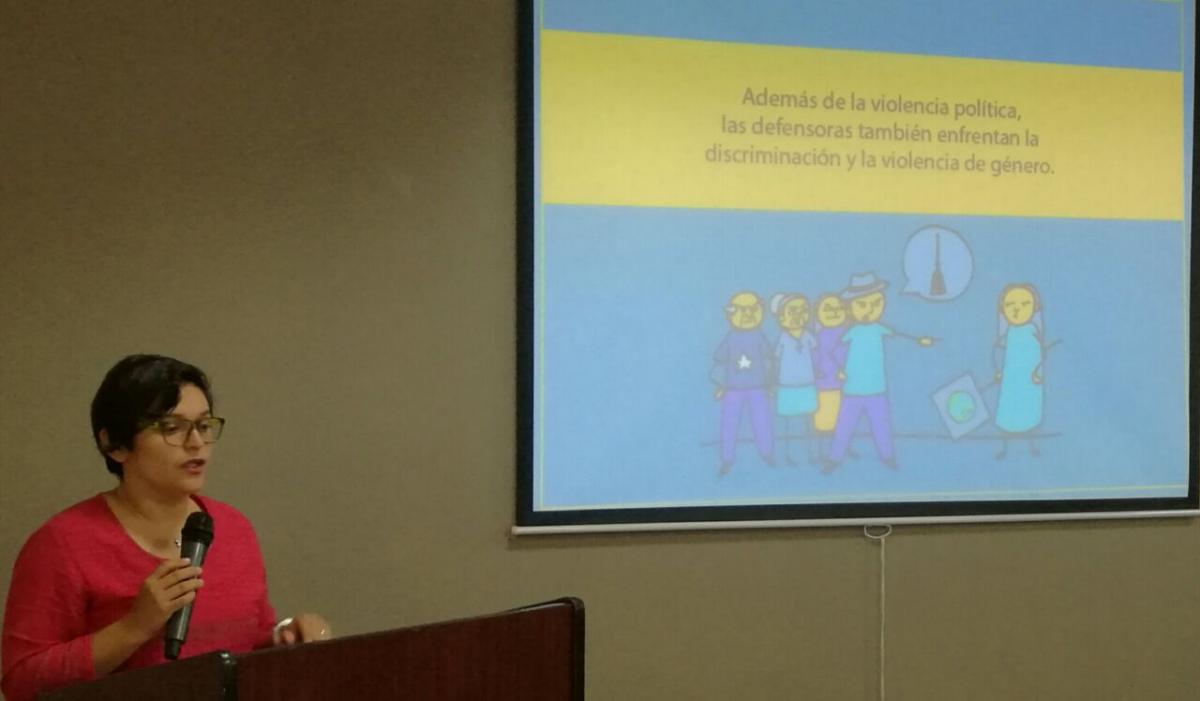 al Law (CEJIL) and Protection International. The report reviews the progress and shortcomings of governmental protection mechanisms especially for WHRD and evaluates the experience of civil society efforts, including the WHRD national and regional networks we’ve been part of building in the region. It offers recommendations for creating more empowering and effective forms of protection for women defenders.
al Law (CEJIL) and Protection International. The report reviews the progress and shortcomings of governmental protection mechanisms especially for WHRD and evaluates the experience of civil society efforts, including the WHRD national and regional networks we’ve been part of building in the region. It offers recommendations for creating more empowering and effective forms of protection for women defenders.
The report is part of re-thinking and re-envisioning protection from the point of view of women defenders. Daysi notes, “We can’t expect mechanisms to respond to the needs of women if women aren’t included in developing those mechanisms and actions that have to do with their protection.” She adds that defenders must be considered subjects not objects in protection programs, and that militarized models with guards and weapons are not effective in the long run. The report concludes that real protection must include the whole society, by building an understanding of and appreciation for the value of the work of rights defenders.
“Protection of women defenders must be based on recognizing their existence, but also their contribution to creating better societies,” a participant in the forum emphasized. This is especially challenging in the case of women human rights defenders due to the often undervalued and invisible aspects of the work they do on a daily basis.
JASS and our partners presented observations based on firsthand experience in the public event organized by the Honduran Coalition Against Impunity, of which JASS is a member. The Coalition event provided an assessment of the human rights crisis in the country focused on the problem of lack of justice. The Rapporteur noted that impunity was “a huge obstacle to access to justice and an impediment to their (HRD) work.”
Many participants pointed out that, as we saw in the case of Berta Cáceres, in addition to failing to prosecute crimes against defenders, governments are also going after them in the courts. Marcia Aguiluz of CEJIL noted, “Criminalization is one of the obstacles most used by governments to limit the right to defend rights.”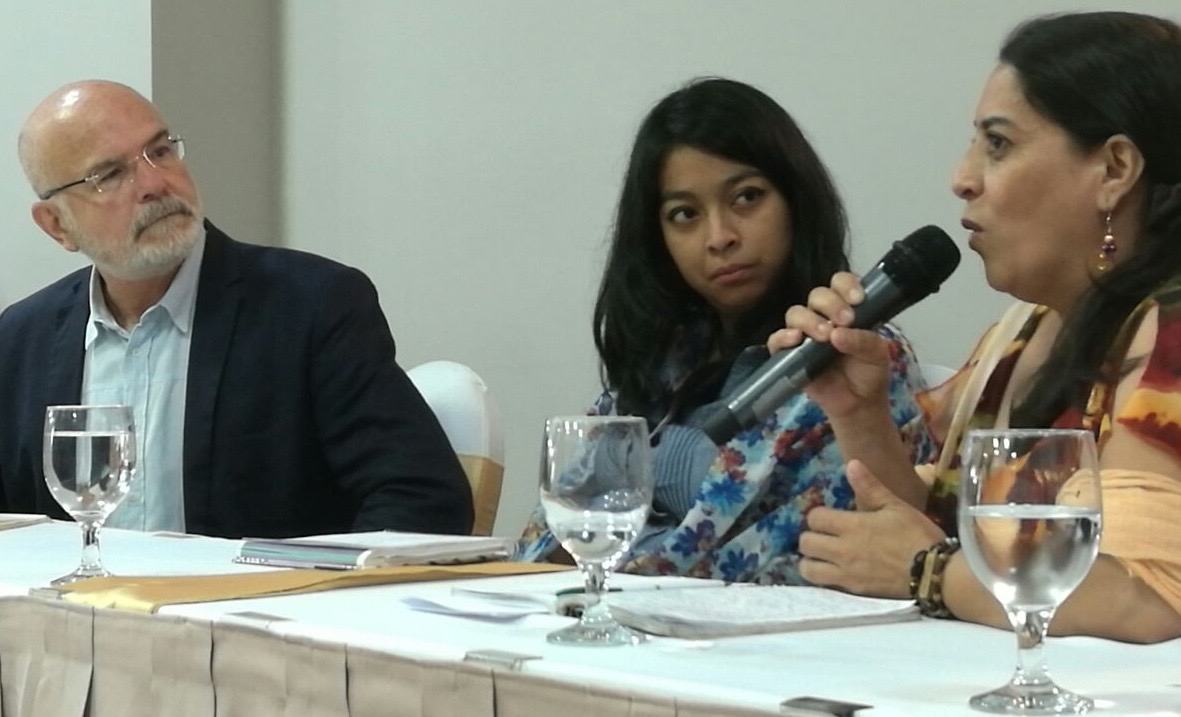
JASS also joined with partners to testify at the regional and national forums with the Rapporteur on the risks to WHRD and the impunity that blocks efforts to eradicate corruption and complicity. Based on years of work in the region, we presented a gender focus on the defense of human rights that brought women’s voices and needs to the forefront of the discussion. The objective, amply fulfilled, was to build awareness and knowledge of the challenges to WHRD within the United Nations Special Rapporteur’s office and among other human rights and social movement organizations.
We also aimed to use the Rapporteur’s visit to reach a larger audience regarding the dangers and challenges to Honduran women human rights defenders. Our communications strategy focused on social networks, developing and posting three profiles of defenders, three Facebook memes on women’s defense of land and territory and two infographics, along with phrases and moments from the meetings. The goal was to communicate with our JASS community in order to consolidate and share our work, and with the general public to get out the message of the crisis and the grassroots efforts of women to confront it. Our press release emphasizing the human rights crisis in the region and the need for a gender focus in protection was picked up by dozens of news outlets.
WHRDs Profiles
JASS work is fueled by the amazing women we work with every day. Profiles of women human rights defenders inspire others by example and help protect defenders through increased recognition. JASS’ profiles of our partners, are also a labor of love. For coverage of the Rapporteur’s Honduras visit, we chose three women who are key to the struggle for women’s rights and land rights in Honduras: Liliam Lopez, Ada Osorio and Miriam Miranda.
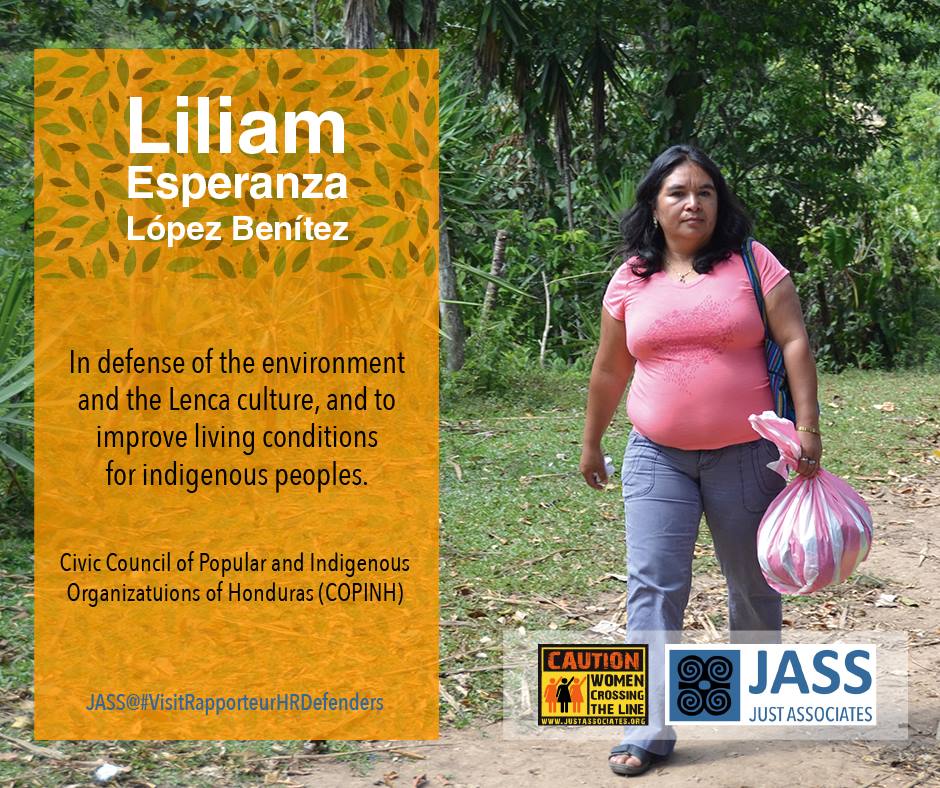
Liliam Lopez is a leader of the Civic Council of Popular and Indigenous Organizations of Honduras (COPINH). She graduated from JASS’ Alquimia Feminist Leadership School and works in community radio, finances and women’s organization among the Lenca people. Liliam continues the work begun by Berta Caceres, the Lenca leader assassinated last March.
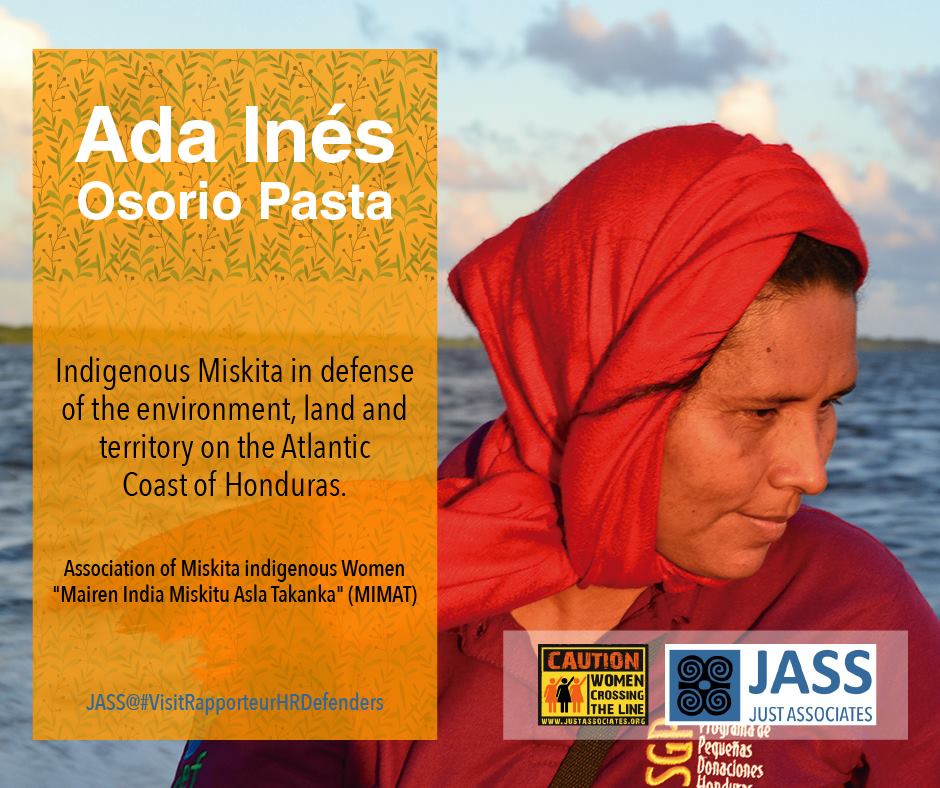
Ada Inés Osorio is a leader of the Association of Miskita Indigenous Women “Mairen India Miskitu Asla Takanka”. She also formed part of the Alquimia School and has led women in defending indigenous land and territory and the environment on Honduras’ Atlantic Coast.
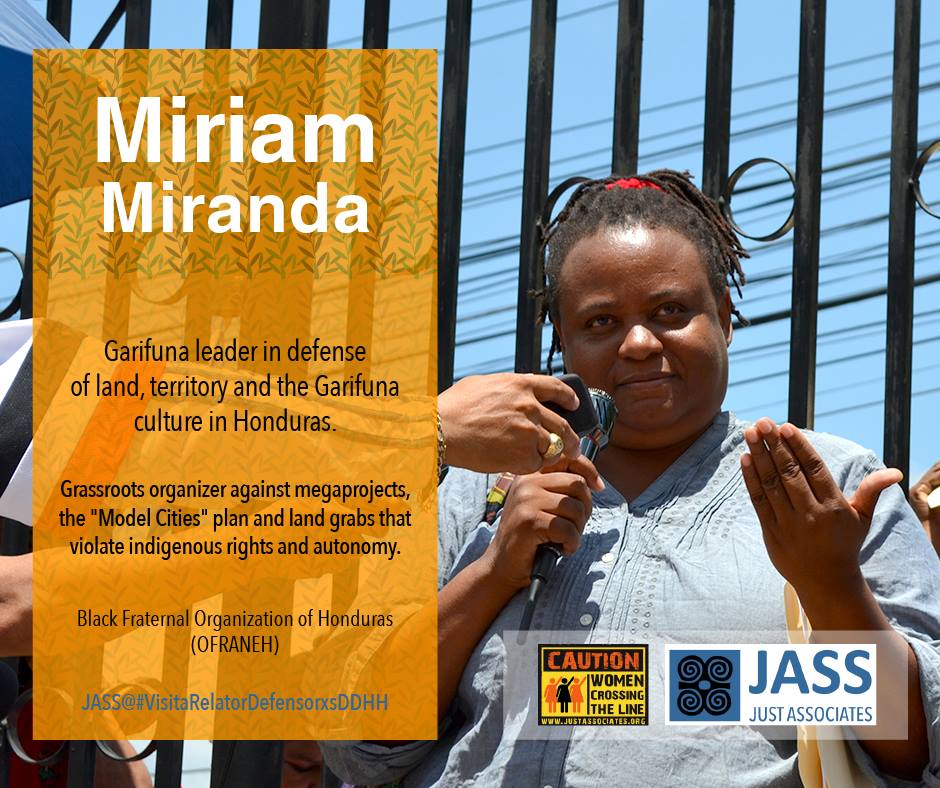
Miriam Miranda is leader of the Black Fraternal Organization of Honduras (OFRANEH). She has successfully led the Garifuna people of eastern Honduras in landmark cases of defense of land, culture and resources.
We distributed the profiles on Facebook and Twitter, where they quickly spread across the web through postings on JASS pages, personal pages and the pages of partner organizations, in English and Spanish. The personal profiles were accompanied each day by issue profiles on 1) the assassination of Berta Caceres and impunity, 2) building grassroots democracy to reduce risks and 3) the need for a gender perspective to protect women defenders of land and territory.
Infographics
Working together between JASS’ Mesoamerica and Honduras offices, we also made two infographics that provided basic data on a gender focus for protection of human rights defenders: 11 documented assassinations of Honduran WHRD since 2012, 318 attacks in a context of impunity.
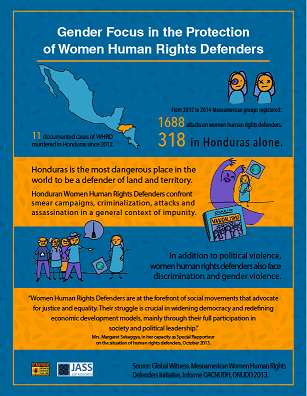
The second focused on women defenders of land and territory: Six rural/indigenous women defenders murdered; 1,700 charged with crimes in 15 departments; 86% of women are landless and 70% of land concentrated in the hands of only 3% of the population. The combination of simple drawings and hard facts tells the story at a glance.
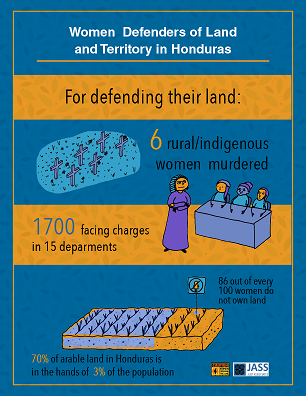
Confronting the Crisis
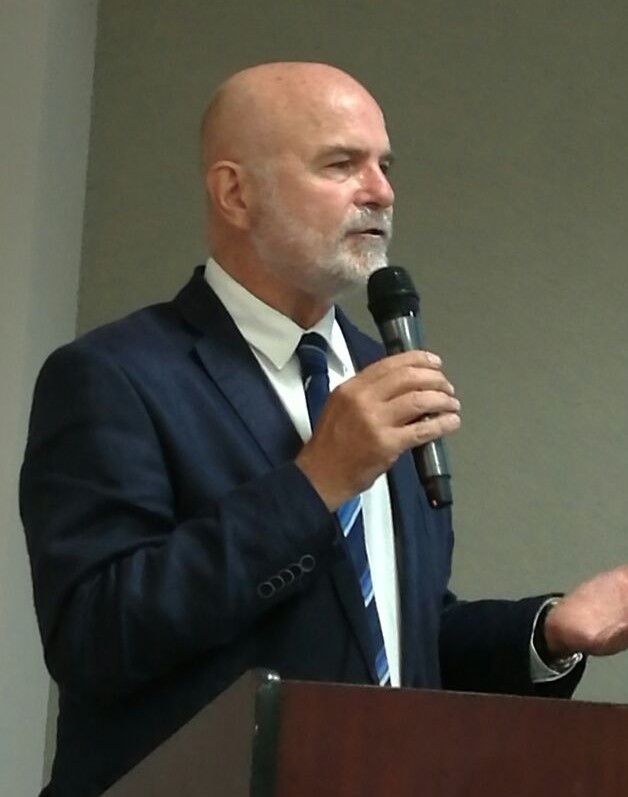 In a news release from UN Special Rapporteur Forst and the Inter-American Rapporteur on Human Rights Defenders, José de Jesus Orozco Henríquez, the experts deemed Honduras “one of the most hostile and dangerous countries for human rights defenders”. They urged the government to “immediately adopt and apply effective measures to protect human rights defenders, so they can carry out their human rights work, without fear or threat of violence or murder.“
In a news release from UN Special Rapporteur Forst and the Inter-American Rapporteur on Human Rights Defenders, José de Jesus Orozco Henríquez, the experts deemed Honduras “one of the most hostile and dangerous countries for human rights defenders”. They urged the government to “immediately adopt and apply effective measures to protect human rights defenders, so they can carry out their human rights work, without fear or threat of violence or murder.“
Their statement concludes, “Violence and attacks against human rights defenders not only affect the basic guarantees owed to every individual. They also undermine the fundamental role that human rights defenders play in building a society that is more equal, just and democratic.”
No society can be fair and equal without gender justice and Honduran WHRD have made great strides in their organizations and communities to integrate women’s rights with the struggle for rights to land and territory, and political, cultural and economic rights. But the costs have been, and continue to be, very high. The defenders, men and women, must be recognized and supported in their work.
“For JASS Mesoamerica, alliances between defenders are key to protection,” says Carme Clavel, Regional Director. “We have to guarantee women’s safety and through empowerment we can defend ourselves better alongside our allies. We firmly support feminist leadership training and international advocacy to denounce impunity, criminalization and attacks on women human rights defenders.”

